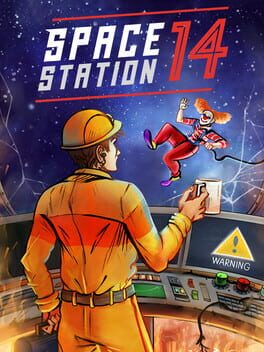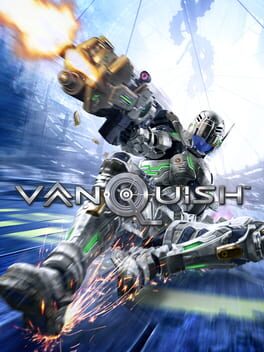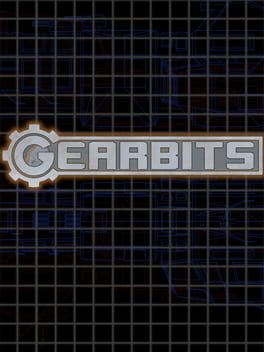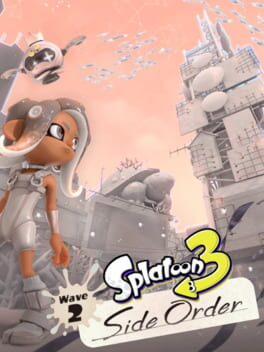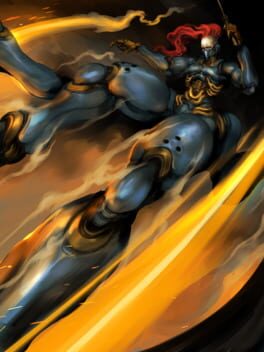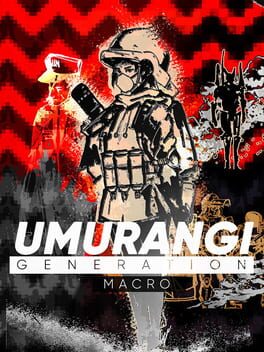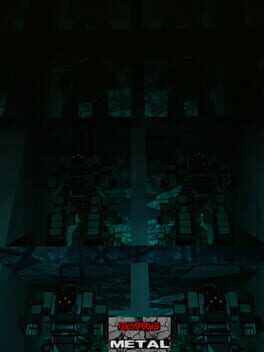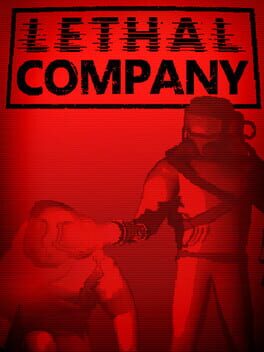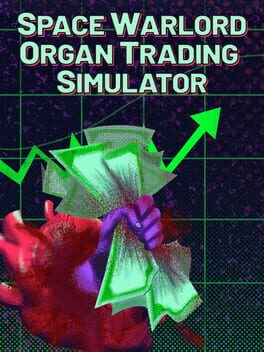AuTomaton
TBD
2010
2023
The game was developed with a very clear idea of what it, as a mecha game, should be like (customizable, social, light-tactical, etc) and a very clear idea of what its creators could not reasonably execute. Gearbits does not excel in any particular way, sure, but what it lacks in tangible quality, it makes up for with dedication to the genre. Geartbits' gameplay is refined to a degree noticeably above the rest of the game; the feelings of frenetic in-flight decision making, weapon planning, and mech tuning that you'd expect from higher-value mecha titles are present in Gearbits too. This is a game created by someone who knew exactly what they wanted and knew exactly what they needed and didn't need to do to make it. Thus, it can do no wrong.
2024
Helldivers executes on its premise just as well as any other squad shooter. The patriotic propaganda to nightmare combat zone is played front, center, and very explicitly. It's good, if a little flat in its execution. I can see how an uncharitable person might gloss over the anti-fascist ideas and claim it's all played straight.
Helldivers does not bring much to the table in terms of raw experience. Most weapons are ineffective on higher difficulties, so players must rely on their stratagems and, once those run out, running around. Helldivers is more running away from enemies than actually fighting them, which is a painful task given the large map and low speeds (and no toggle sprint button iykyk). Despite the lack of details that point otherwise (I love playing DDR for objectives and stratagems) the minute-to-minute action of Helldivers is surprisingly uninteractive when it's mostly spent jogging across the map with enemies at your heels. This is less of a problem for blitz and defense missions, but most of the time you're slogging through 30-50 minute general objective missions where a hopeless last stand is simply not in your best interest from a gameplay point of view. And with having to do 2 or 3 back to back for ideal medal collection, a game of Helldivers forcefully drags on for hours.
I'm not sure what the correct answer is to Helldivers' lack of interaction. The game offers little to explore and play with mechanically, as if the only progression was that of upgrade trees and battle passes. I don't know if getting "better" at Helldivers is really possible. From where I'm standing, there's not much to get better at.
I've heard that there's a lot of work into making invasions of planets feel alive. That every Super Destroyer you see in game and every shell fired in a loading screen is an actual squad somewhere on the planet doing Super Democracy's work. If that's true, it's genuinely an impressive way to make the "war" of Helldivers 2 feel alive, feel real. But it doesn't make up for what Helldivers doesn't provide in the game itself.
This one's for the lads, no doubt. If you're not much for dicking around with the boys, Helldivers 2 doesn't have much to offer.
Helldivers does not bring much to the table in terms of raw experience. Most weapons are ineffective on higher difficulties, so players must rely on their stratagems and, once those run out, running around. Helldivers is more running away from enemies than actually fighting them, which is a painful task given the large map and low speeds (and no toggle sprint button iykyk). Despite the lack of details that point otherwise (I love playing DDR for objectives and stratagems) the minute-to-minute action of Helldivers is surprisingly uninteractive when it's mostly spent jogging across the map with enemies at your heels. This is less of a problem for blitz and defense missions, but most of the time you're slogging through 30-50 minute general objective missions where a hopeless last stand is simply not in your best interest from a gameplay point of view. And with having to do 2 or 3 back to back for ideal medal collection, a game of Helldivers forcefully drags on for hours.
I'm not sure what the correct answer is to Helldivers' lack of interaction. The game offers little to explore and play with mechanically, as if the only progression was that of upgrade trees and battle passes. I don't know if getting "better" at Helldivers is really possible. From where I'm standing, there's not much to get better at.
I've heard that there's a lot of work into making invasions of planets feel alive. That every Super Destroyer you see in game and every shell fired in a loading screen is an actual squad somewhere on the planet doing Super Democracy's work. If that's true, it's genuinely an impressive way to make the "war" of Helldivers 2 feel alive, feel real. But it doesn't make up for what Helldivers doesn't provide in the game itself.
This one's for the lads, no doubt. If you're not much for dicking around with the boys, Helldivers 2 doesn't have much to offer.
Side Order is more of singleplayer Splatoon 3's good enough single player. The interesting parts of cyclical progression and random(ish) levels is counterbalanced by the conflicting choices in reward acquisition. That is to say, Side Order's reward currency is fastest to obtain in low-risk, low difficulty hack configurations, rather than the riskier, higher-difficulty option. There's also a lot of grinding for the reward currency, especially if you're quick to clear every palette. But it's still very cute in all of its sploony set-dressing, and you can't go too wrong with good ol' Splatoon gameplay.
If the original Umurangi Generation is a subtle, if garbled, hiss against impending climate disaster and the condemnation of disenfranchised youth for their dispair, Macro shouts it in your face and then (literally!) calls you mean names if you still don't get it. In socialist/political art criticism, we call this amplified approach to communicative expression "based".
2023
2020
Updating the MechWarrior 2 concepts by greatly increasing unit speed and movement fidelity is the right way to bring old-style mecha shooters back to modern standards. However, I question not keeping MechWarrior 2's low times-to-kill. High-speed maneuvering and jousting between mechs that take five real-time minutes to down makes high-speed movement feel unwieldy and overtuned. Battlemetal's engine is an open-sourced DarkPlaces fork, and I'm so excited to see what comes of the engine, or if anyone picks it up and makes new games with it. The technical groundwork done here is impressive.
Battlemetal the game, however, is mostly non-functional and slapdash in execution. The game presents like the fastest-possible asset fill-in to prove that the engine can actually play a game. The game, as software, struggles to size windows and text correctly or execute campaign elements in the intended way. Battlemetal might be fun if you hop on it with a handful of mech-minded friends, or for the study of mecha games as a genre, though.
Battlemetal the game, however, is mostly non-functional and slapdash in execution. The game presents like the fastest-possible asset fill-in to prove that the engine can actually play a game. The game, as software, struggles to size windows and text correctly or execute campaign elements in the intended way. Battlemetal might be fun if you hop on it with a handful of mech-minded friends, or for the study of mecha games as a genre, though.
2023
The mechanics of this game are almost identical to real life. You buy and sell commodities and commodities futures and do basically nothing with them until the market decides that they're more valuable or you can offload them at someone else's expense. The organ-y framing is a good way to highlight the parasitic nature of speculative fake-wealth generation that directly feeds off of the suffering (in this game more literally) of common people.
My favorite part of Organ Trading is how fast it starts. Once you hit the trade bell you're just going. The tutorial is playing the game while Mentaur bullies/bothers you, so it never slows the player down. Keeping up this breakneck pace during market times is where this game is at its strongest.
The weakness is Organ Trading systematically is that this breakneck pace does not last. Past a certain point, playing the market slowly and patiently is much more profitable than actually buying and selling organs or filling orders. The game naturally ends much faster than this occurs, though. I played on one save file the whole time before I got bored, maybe if you switched saves every few endings you won't have this problem as quickly?
My favorite part of Organ Trading is how fast it starts. Once you hit the trade bell you're just going. The tutorial is playing the game while Mentaur bullies/bothers you, so it never slows the player down. Keeping up this breakneck pace during market times is where this game is at its strongest.
The weakness is Organ Trading systematically is that this breakneck pace does not last. Past a certain point, playing the market slowly and patiently is much more profitable than actually buying and selling organs or filling orders. The game naturally ends much faster than this occurs, though. I played on one save file the whole time before I got bored, maybe if you switched saves every few endings you won't have this problem as quickly?
2015
2018
Aesthetically, mentally, and musically rich. Exapunks delivers on challenging, creative, and narratively interesting hacker puzzles (even if some of them take a bit to long to write and test for). These puzzles are held up by a foundation of amazing world and environment choices. Tutorializing through hand-delivered zines is what puts the 'punk' in Exapunks, beyond being fun souvenirs. You genuinely have to rely on anarchist, independent publishing for photoscans of documentation. Turning that grass-roots knowledge into independent action, both for real personal and community benefit and just to screw with people because you can, empowers the player to hack by and for themselves. Having access to a chatroom of room-temperature IQ nerds for exposition is another great touch. It makes the world, already supported by NPC interaction, puzzles, and the zines, feel that bit more real.
I feel like the art and voices are drawn and performed very cleanly, a bit too cleanly, for this kind of game. I'm fine with saying that the art is overly clean/safe to give a visual comparison to the player's world of exas and the actual material world they live in, but not the voice work. It's done well by the actors, but it's presented in a very sanitized way. It's like every character is a GPS voice. Real people don't sound that 'mastered' in real life, you know?
I feel like the art and voices are drawn and performed very cleanly, a bit too cleanly, for this kind of game. I'm fine with saying that the art is overly clean/safe to give a visual comparison to the player's world of exas and the actual material world they live in, but not the voice work. It's done well by the actors, but it's presented in a very sanitized way. It's like every character is a GPS voice. Real people don't sound that 'mastered' in real life, you know?
2023
Very fun arcade shooter. Simple and pretty easy, but easily holds up both by itself as a game and as a light-weight gunslinging simulator. Showdown holds up play in such a straightforward and enjoyable way, and it also has intricate optimizations allowing crafty or fast players to squeeze extra kills out of every activation. Allowing players to spec into, or away from, showdown or gun-shooting enables players to play the game in such a way where they play their fun way more often. That's always an excellent decision to make.
Kill The Crows has some lose tolerances when it comes to collision detection, but I actually don't mind that. Sure, you'll get chipped by a stray bullet going through a fence every 2 hours or so, but you'll also be pulling off trickshots and multikills that really shouldn't be possible. It balances out more in the player's favor, but not overly so, so I like it.
Kill The Crows has some lose tolerances when it comes to collision detection, but I actually don't mind that. Sure, you'll get chipped by a stray bullet going through a fence every 2 hours or so, but you'll also be pulling off trickshots and multikills that really shouldn't be possible. It balances out more in the player's favor, but not overly so, so I like it.
